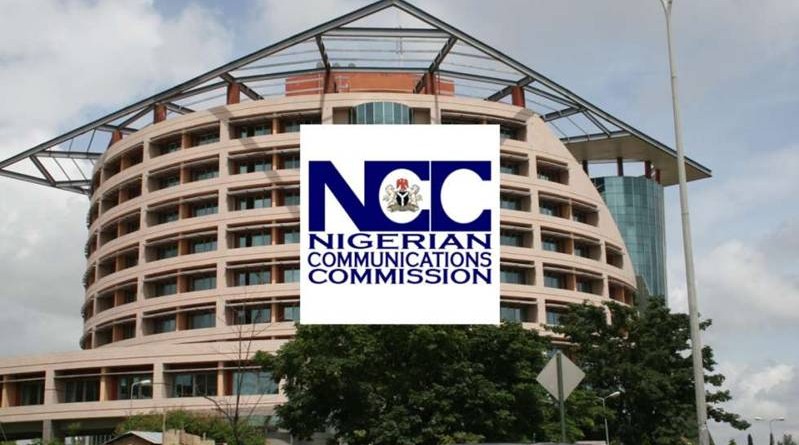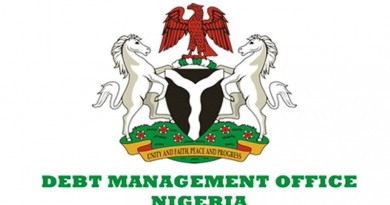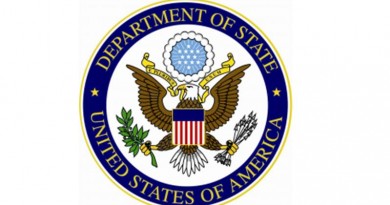NCC pins telecoms sector growth on effective collaboration of industry and the academia
The Nigerian Communications Commission (NCC) has said the rise in tempo and sophistication of innovations in communication technology hold greater if there is sustained synergy and collaborative linkages between the academia and the industry to produce quality research outputs to drive innovation in the Nigerian telecoms sector.
The Commission also said it has made great strides in the last three years working with the academia in the area of promoting research and development (R&D) and innovation in the country, especially with respect to telecommunications-based research outputs.
Prof. Umar Garba Danbatta, Executive Vice Chairman (EVC) of NCC, made the declaration on at the NCC 3rd Annual Stakeholders Consultative Forum with Academia and Industry, organised at Transcorp Hilton Hotel, Abuja. The theme of the forum is, “Stakeholders Collaboration in Research & Developmemt (R&D): Key Driver for Innovation in Telecommunications Industry.”
Addressing a gathering of over 40 Vice Chancellors and representatives of various universities and other top industry executives, Danbatta, who was represented at the forum by Dr. Alhassan Haru, Director, New Media and Information Security, NCC, said the continuous synergy has become imperative in the context of the advancement in Information and Communication Technology (ICT).
The EVC stressed that the Commission, in the last three years, has developed several initiatives in this regard. This include the recent constitution of a Standing Committee on the Implementation of the Report of the Panel of Experts on the Design of Blueprint for ICT Research programmes in Nigeria.
Danbatta said the initiatives are to advance NCC’s goal of using research to enhance regulatory activities and ensure productive collaboration between the academia and telecom industry to address the challenges of the industry and innovation-driven research outputs.
Danbatta told the audience that while results in the past few years have proved that “we have collectively made great strides”, this year’s edition of the forum further gave “the Commission another opportunity for expanding the goals such as full R&D funding and participation by all stakeholders; collaboration in commercialisation of local innovations; institutionalisation of the local innovations resulting in industry sustainability; increased contribution of the sector to national Gross Domestic Product (GDP) and importantly to improve quality of life for all Nigerians.”
He noted that together with the stakeholders in the academia, the Commission can identify and articulate the pressing needs of the industry, unlock the inherent potential of knowledge that exists in the academia and agree on public policies so that the NCC’s dreams of local content-based technology innovations and solutions will become a reality.
Also, Ubale Maska, Executive Commissioner, Technical Services (ECTS), NCC, who was represented by Ephraim Nwokenneya, Director, R&D of the Commission, said the gathering signifies an acknowledgement of the critical position of the academia in the current knowledge economy and underscores a shared passion for research and innovation in telecoms sector.
“We believe that this consultation will reduce information uncertain and bridge the gap between the academia and the industry. Hence, the Commission’s commitment towards deepening the collaborative efforts with the academia and industry as a strategy to facilitate more R&D activities that could unlock life-changing innovations and opportunities in the national economy through digital technology,” Maska said.
Dr. Suleiman Ramon-Yusuf, Deputy Executive Secretary, Academics, National Universities Commission (NUC), spoke extensively on framework for collaboration for sustainable innovation. His presentation, anchored on “Triple Helix Model”, speaks to the need for continuous improvement and synergy among the academia, government and industry as three key players. He commended NCC on its R&D efforts and urged other government institutions to emulate the Commission in this regards.
In his paper, Dr. Olubayo Adekanmbi, Chief Transformation Officer, MTN Nigeria, discussed R&D in telecoms industry and the role of operators. He called for increased collaboration among key players. Adekanmbi cited MTN’s Academic Research and Development Partnership Programme as the operator’s initiative to provide an end-to-end support for student innovators to thrive as well as provide a platform to solidify the collaboration between academia and the industry in a more concrete sense.
In the same vein, Segun Shogbanmu, representative of Verraki Partners, emphasised the need for Corporate Nigeria to collaborate with the academia to produce research outputs that connect with the industry, thereby creating an enduring linkage to advance economic growth.
Dr. DanAzumi Ibrahim, Director General, National Office for Technology Acquisition and Promotion (NOTAP), advocated increased collaboration among industry players to fund research in varsities and research institutes; and to encourage the academia on patenting their research prototypes towards making them commercially viable.




